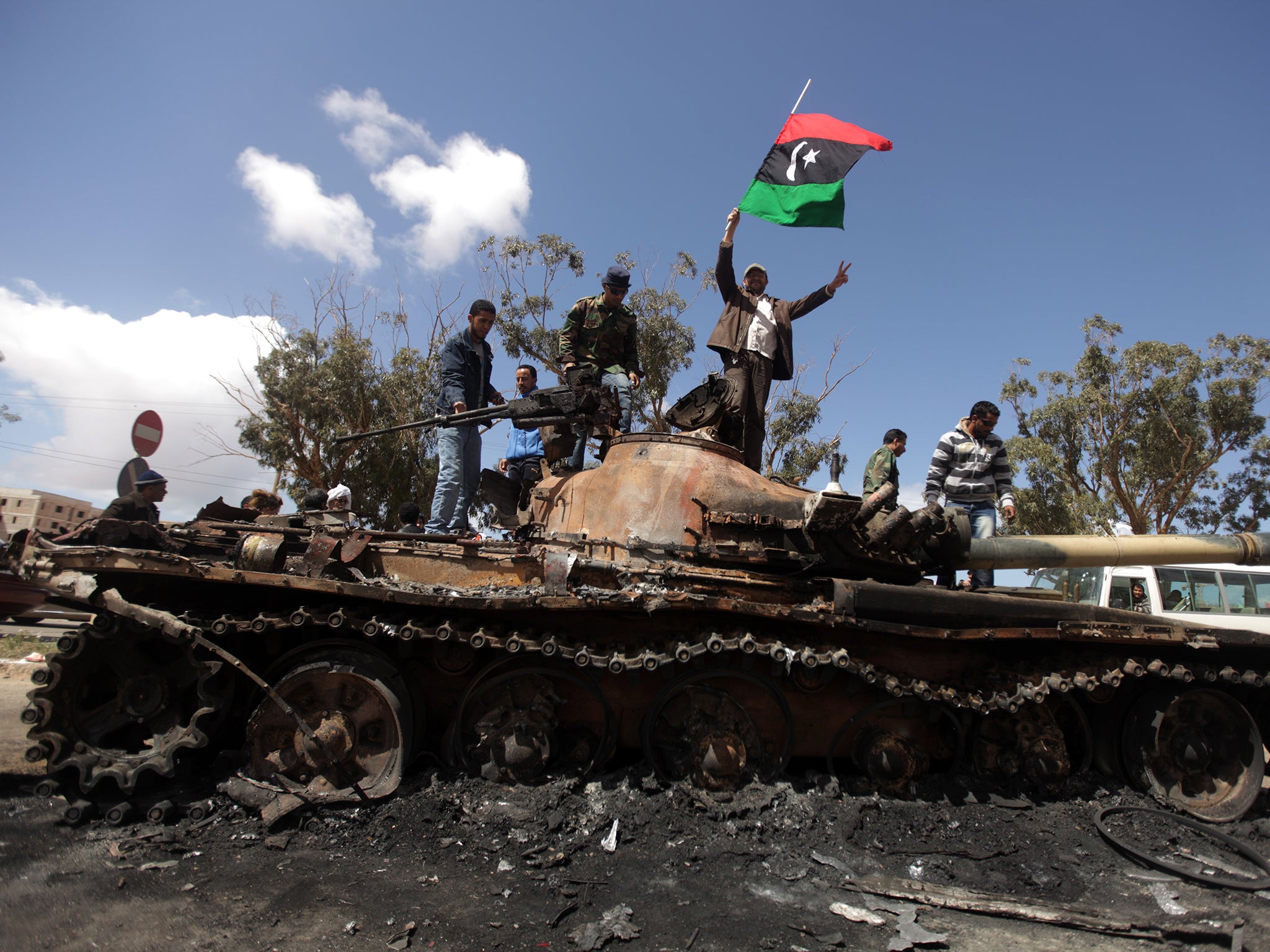Libya sinks into poverty as the oil money disappears into foreign bank accounts
Corruption was endemic in the country under Colonel Gaddafi. But now, amid the chaos of military struggle, it overwhelms the whole fabric of the country

Your support helps us to tell the story
From reproductive rights to climate change to Big Tech, The Independent is on the ground when the story is developing. Whether it's investigating the financials of Elon Musk's pro-Trump PAC or producing our latest documentary, 'The A Word', which shines a light on the American women fighting for reproductive rights, we know how important it is to parse out the facts from the messaging.
At such a critical moment in US history, we need reporters on the ground. Your donation allows us to keep sending journalists to speak to both sides of the story.
The Independent is trusted by Americans across the entire political spectrum. And unlike many other quality news outlets, we choose not to lock Americans out of our reporting and analysis with paywalls. We believe quality journalism should be available to everyone, paid for by those who can afford it.
Your support makes all the difference.If ever a nation can be said to be cursed by its own natural resources wealth, it is Libya. Despite having the largest oil reserves in Africa, and the tenth largest in the world, around a third of the population live in poverty.
Many people live without access to clean drinking water or proper sewerage systems.
The reasons are simple: for years, Libya has been living with war and corruption. The nation held together in an iron fist by Colonel Gaddafi first went through the bloody, UK-backed conflict that overthrew the colonel in 2011, then plunged into civil war in 2014.
The current fighting sees groups of militias battling for control of the country’s resources, with claims and counter claims of Islamic extremism and terrorism. The militias are funded by, and seeking the oil wealth which makes up 95 per cent of the country’s exports.
Hand in hand with the armed conflict goes corruption on a grand scale. Corruption was endemic in the country under Gaddafi. But now, amid the chaos of military struggle, it overwhelms the whole fabric of the country.
According to the Corruption Perceptions Index from Transparency International, Libya is ninth from bottom of a league of 180 nations.
One of the most damaging forms of abuse has been the way corrupt elements have exploited the difference in exchange rates between the official version and the black market one. While one dollar currently buys about 1.4 dinars, the black market rate has been as much as seven dinars. Officials and businessmen given dollars at the official rate to buy vital foreign goods will cash them in illegally at the black market rate, leaving little left for essential imports.
Likewise, oil traders can exploit the two different exchange rates to leave the country receiving less than it is due for its crude.
The country is sinking further into poverty and instability as the oil money disappears into foreign bank accounts.
In a speech this week, Ghassan Salame, of the UN Support Mission In Libya condemned the culture of impunity for criminality that enables corruption and people smuggling to flourish. He painted a picture of a country in economic decline, ruled in parts by self-serving individuals holding “crucial, and too often lucrative official positions.”
Ordinary Libyans, he said, long for change. A systematic clean-up of Libya’s institutions, weeding out those who undermine them through corrupt self-enrichment, is an essential way to get that started.
Join our commenting forum
Join thought-provoking conversations, follow other Independent readers and see their replies
Comments